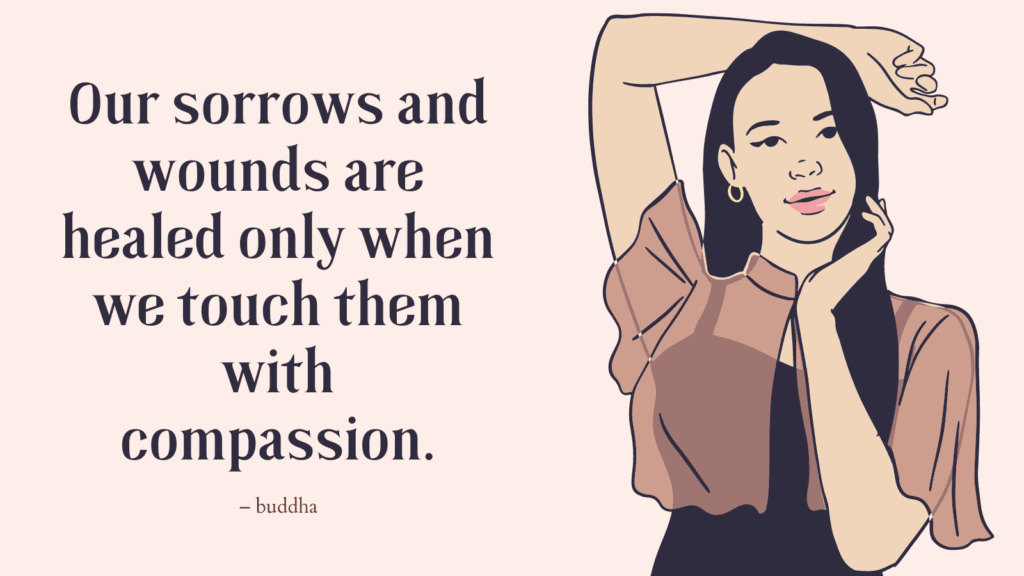In this post, you’re going to learn all about complex PTSD and nightmares – what is the connection and how to cope.
What Is Complex PTSD?
Complex Post-Traumatic Stress Disorder (C-PTSD) is a psychological condition that can develop as a result of prolonged or repeated exposure to traumatic events.
It is often associated with instances of chronic abuse, interpersonal trauma, or prolonged exposure to traumatic situations, such as captivity, ongoing domestic violence, or childhood neglect.
Unlike traditional PTSD, which typically results from a single traumatic event, C-PTSD is characterized by the cumulative impact of multiple traumas over an extended period.
This chronic and repetitive nature of the traumatic experiences can lead to a distinct set of symptoms and challenges in affected individuals.
The symptoms of C-PTSD can be categorized into four main clusters:
1. Emotional Dysregulation: Individuals with C-PTSD often struggle with managing their emotions. They may experience intense and overwhelming emotions, have difficulty regulating anger, and exhibit frequent mood swings. They may also have persistent feelings of shame, guilt, or self-blame related to the trauma they experienced.
2. Self-Identity Disruption: C-PTSD can significantly impact an individual’s sense of self. They may experience disruptions in their self-concept, including feelings of worthlessness, helplessness, or a distorted view of themselves as fundamentally flawed or damaged. These disruptions may lead to difficulties in establishing a stable and positive self-identity.
3. Interpersonal Difficulties: People with C-PTSD often struggle with forming and maintaining healthy relationships. They may have trust issues, find it difficult to establish boundaries, or engage in self-sabotaging behaviors that push others away. Additionally, they may have a heightened sensitivity to perceived threats or rejection, making it challenging to establish and maintain healthy connections with others.
4. Somatic Symptoms: C-PTSD can manifest in physical symptoms as well. Individuals may experience chronic pain, gastrointestinal issues, headaches, or other physical complaints without any apparent medical cause. These somatic symptoms are believed to be linked to the physiological and psychological impact of the trauma.
It’s important to note that C-PTSD is not yet officially recognized as a separate diagnosis in the Diagnostic and Statistical Manual of Mental Disorders (DSM-5).
However, it has been widely discussed in the field of psychology and is recognized by many professionals as a valid and distinct condition with its own unique set of symptoms and challenges.
Related: Why Is Trauma Therapy So Hard? (+Best Trauma Healing Exercises To Support Your Recovery)
The Connection between Complex PTSD and Nightmares
There is a strong connection between Complex Post-Traumatic Stress Disorder (C-PTSD) and nightmares.
Nightmares are a common symptom experienced by individuals with C-PTSD, and they can significantly impact their overall well-being and quality of sleep.
Nightmares in C-PTSD often stem from the distressing and traumatic experiences that individuals have endured.
These traumatic memories can resurface during sleep, disrupting the natural sleep cycle and leading to vivid and distressing nightmares.
These nightmares may be direct replays of the traumatic events or symbolic representations of the underlying emotions and fears associated with the trauma.
The content of the nightmares can vary, but they often involve themes of helplessness, danger, or threat, which reflect the individual’s intense emotional experiences during the traumatic events.
These nightmares can be highly distressing and may cause individuals to wake up feeling frightened, anxious, or overwhelmed, making it challenging for them to fall back asleep or get restful sleep.
Related: How To Rebuild Your Life After Trauma?
Complex PTSD and Nightmares: Top 9 Ways to Cope
Here are nine effective ways to cope with nightmares related to Complex Post-Traumatic Stress Disorder (C-PTSD):
1. Seek therapy
Working with a qualified therapist who specializes in trauma and C-PTSD can provide you with valuable tools and support to address nightmares and their underlying causes.
Therapeutic techniques, such as cognitive behavioral therapy, exposure therapy, or eye movement desensitization and reprocessing (EMDR), can be particularly helpful.
2. Practice good sleep hygiene
Establishing a consistent sleep routine, maintaining a calming sleep environment, and avoiding stimulating activities before bed can promote better sleep quality and reduce the likelihood of nightmares.
3. Relaxation techniques
Engage in relaxation exercises, such as deep breathing, progressive muscle relaxation, or guided imagery, before bed to help calm your mind and body, making it easier to fall asleep and potentially decrease the occurrence of nightmares.
Related: Top 10 Signs You’re Stuck In Freeze Response
4. Imagery rehearsal therapy (IRT)
This therapeutic technique involves rewriting and rehearsing new, positive endings to your nightmares while awake.
By visualizing more empowering outcomes, you may gradually change the content and emotional impact of your nightmares.
5. Grounding techniques
Develop grounding strategies that anchor you in the present moment when you wake from a nightmare.
Focus on your surroundings, such as feeling a familiar texture or noticing specific objects in the room, to shift your attention away from the distressing dream.
6. Emotional regulation skills
Learn and practice skills to manage intense emotions associated with trauma, both during waking hours and when faced with nightmares.
Techniques like deep breathing, mindfulness, or journaling can help you process and regulate your emotions effectively.
Related: Do I Have Trauma? Top 4 Practical Exercises To Support Your Trauma Healing
7. Create a safety plan
Establishing a safety plan that includes strategies to soothe yourself when awakened by nightmares can be beneficial.
This may involve having comforting items or engaging in calming activities readily available by your bedside.
8. Supportive social network
Surround yourself with understanding and supportive individuals who can offer comfort and reassurance during difficult times, including when nightmares occur.
Sharing your experiences with trusted friends, family members, or support groups can also provide validation and a sense of community.
Conclusion
Each individual’s experience is unique, so it’s crucial to work closely with a mental health professional to tailor coping strategies to your specific needs.
They can provide personalized guidance and support throughout your healing journey.



